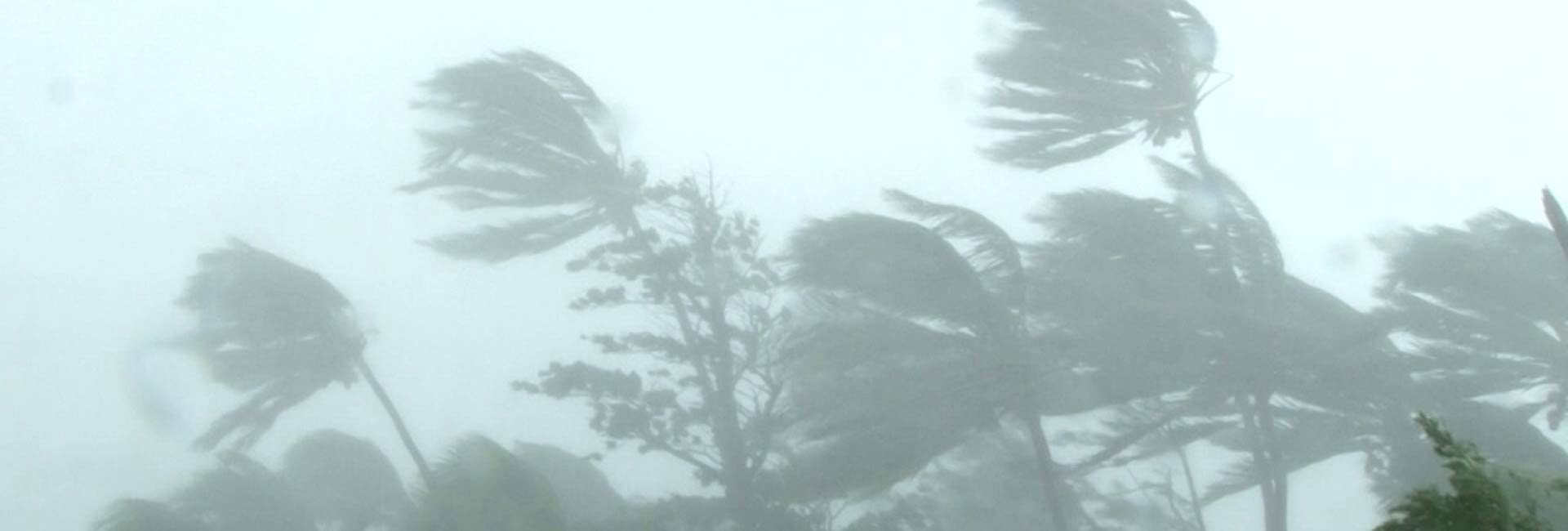


Rosenstiel School researchers are analyzing whether warmer freshwater from South American rivers is impacting the strength of hurricanes in the Caribbean Sea.
Hurricane Matthew, the powerful Category 5 tropical cyclone that brought widespread destruction and catastrophic loss of life during its journey across the Western Atlantic in 2016, may be one of many examples of a tropical storm fueled by massive rings of warm water that exist in the upper reaches of the Caribbean Sea.
In a NASA-supported study conducted in the region two years prior to when Matthew trekked across the Caribbean Sea, the research team in the Upper Ocean Dynamics Laboratory at the University of Miami’s Rosenstiel School of Marine and Atmospheric Science deployed 55 aircraft ocean instruments from the National Oceanographic and Atmospheric Administration’s (NOAA) WP-3D aircraft. The purpose of the scientific mission was to measure ocean temperature, salinity and currents to understand the structure of these warm-water eddies.
The science team obtained vital information about the physical characteristics within one large warm-water eddy, which likely originated from the North Brazil Current, and analyzed its potential influence on sub-surface ocean conditions during the passage of tropical cyclones.
About the Video
South Florida and the Caribbean are likely to see an increase in hurricane and storm intensity and variability.
Join the Conversation:
Follow on
Twitter:
UM Rosenstiel School of Marine and
Atmospheric Science, @UMiamiRSMAS
University of
Miami, @univmiami
UM News, @univmiaminews

When analyzing the data, they found a barrier layer—an upper ocean feature created by the Amazon-Orinoco freshwater river outflow—that makes mixing in the upper ocean waters less efficient during wind events. This feature, and the fact that warm ocean eddies are known to assist in the intensification of hurricanes due to their deep warm thermal layers, led the researchers to theorize that the barrier layer within a warm ocean eddy may result in an even more favorable upper ocean environment for hurricane intensification.
“Our study is important because tropical cyclone intensity forecasts for several past hurricanes over the Caribbean Sea have under-predicted rapid intensification events over warm oceanic features,” says Johna Rudzin, a Ph.D. student at the Rosenstiel School and lead author of the study.
Tropical storms receive energy from their surrounding ocean waters. As a storm moves across the water, it may interact with rings of warm water known as eddies. As the storm moves forward over these eddies, the warm ocean waters below help fuel the storm’s intensity through enhanced and sustained heat and moisture fluxes.
Similar warm ocean eddies exist in the Gulf of Mexico, a result of their separation from the warm-water Loop Current. The research team is also interested in studying these eddies.
Last year, Hurricane Matthew rapidly intensified from a tropical storm to hurricane status as it moved over the Caribbean Sea in the location where a warm ocean eddy exists and in close proximity to where these measurements were taken for this study two years before. Matthew continued to intensify to a Category 5 storm and into one of the strongest in Atlantic Basin history, making landfall and devastating portions of Haiti, Cuba and the eastern United States.
According to the researchers, to better understand if Matthew’s intensification was aided by the warm-water eddies and the residing barrier layer in the Caribbean Sea’s upper ocean, more ambient and in-storm upper ocean observations in this basin are needed to improve forecast models for the region.
The study, titled “Upper Ocean Observations in Eastern Caribbean Sea Reveal Barrier Layer within a Warm Core Eddy,” was published February 10 in the Journal of Geophysical Research: Oceans. The study’s authors include Rosenstiel School researchers Johna E. Rudzin, Lynn “Nick” Shay, Benjamin Jaimes and Jodi K. Brewster.
- Special to UM News
